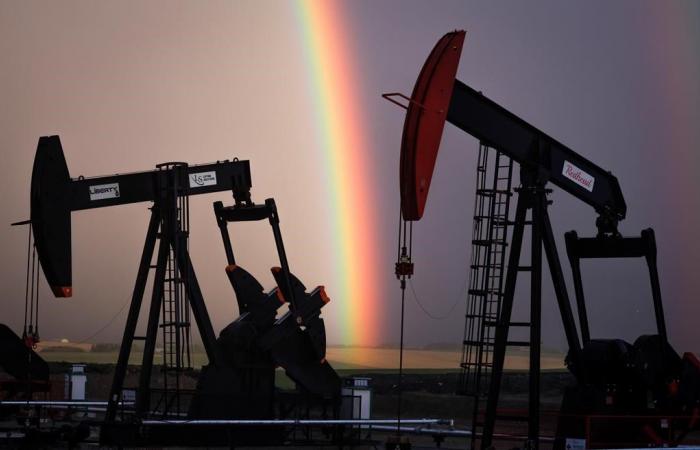When news of the prime minister’s decision became public, some energy investors and traders rejoiced on social media. Canadian oil and gas stocks surged to lead all other sectors in gains Monday, with the S&P/TSX Capped Energy Index rising as much as 2% midday before closing up 0.79%.
Oil and gas industry groups declined to immediately comment on Mr. Trudeau’s announcement, but Heather Exner-Pirot, special energy adviser at the Business Council of Canada, said she believed the prevailing sentiment in the oil sector Monday was one of “relief”.
According to Ms. Exner-Pirot, the Canadian oil and gas sector has had a difficult relationship with the Trudeau government over the past decade, and many of the policies put in place under his leadership have been seen as downright hostile to the exploitation of the oil and gas.
“The Liberal government (of Prime Minister Trudeau) has made the Canadian oil and gas sector uncompetitive,” she observed. So there is some optimism now that Canada will finally be a place open for business.”
The federal government, under his leadership, made a major investment in the sector by purchasing the Trans Mountain pipeline in 2018. As owner of the project, the federal government also completed a multi-billion dollar expansion, which enabled Canadian oil production and exports to reach new heights.
SEE ALSO | Justin Trudeau will leave office
But the Liberal government’s commitment to its climate goals has also led it to introduce a series of policies that have been hugely unpopular within the industry. These include the federal Impact Assessment Act (dubbed “Anti-Pipeline Law” by its critics), the federal moratorium on oil tanker traffic off the north coast of British Columbia, and the recent anti-greenwashing law, which led a number of oil and gas companies to remove all environment-related content from their websites.
The Trudeau government’s proposed cap on oil and gas emissions, which has not yet been finalized, has faced strong opposition from the industry as well as the oil-producing provinces of Alberta and of Saskatchewan.
The Alberta Business Council, which represents several of the country’s largest oil and gas producers, called the proposed cap a “discriminatory and divisive” policy that could result in the loss of tens of thousands of jobs in the province.
Scott Crockatt, vice-president of communications at the council, said Monday that the announcement of the prime minister’s resignation meant that this “economically damaging policy” was unlikely to materialize any time soon.
“I think this means that the cap on oil and gas emissions will not see any further development for at least (the first quarter) of this year, and — in what seems to be the most likely scenario — maybe not before the next election,” he explained in an interview.
Sector uncertainties
However, for Mr. Crockatt, Mr. Trudeau’s departure leaves significant uncertainty at a time when Canada cannot afford to be “rudderless.” He added that concerns remain about U.S. President-elect Donald Trump’s threats of tariffs on Canadian products, and that businesses need to know the federal government is ready and able to negotiate on their behalf.
“Many companies — particularly in the energy sector — are entering into agreements today that will take effect after the start of the Trump presidency,” he noted. It is therefore worrying not to know what the coming months will look like in terms of relations between Canada and the United States.”
It’s also unclear what the future holds for some of the decarbonization projects proposed by Canada’s energy sector under a Trudeau government, Exner-Pirot said, including the Pathways carbon capture and storage project. Alliance, which would reduce emissions from oil sands production if achieved.
A spokeswoman for the Pathways Alliance, an umbrella group of oil sands companies that has yet to make a final commitment to build the proposed $16.5 billion project, declined to comment Monday.
But Ms. Exner-Pirot clarified that, under the leadership of Mr. Trudeau, the federal Liberals have put in place a series of incentives for carbon capture and storage. It’s unclear whether the federal Conservatives, under the leadership of Pierre Poilievre, would provide the same level of support if they formed the next government, she added.
“(The Conservatives) don’t seem very enthusiastic about the idea. It doesn’t seem like they would support what is needed to get this project over the line in the time frame we are looking for, Exner-Pirot concluded. So yes, I would say it is a threat to the Pathways Alliance.”






